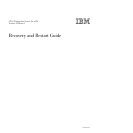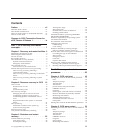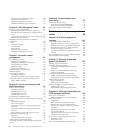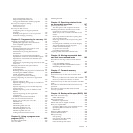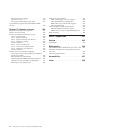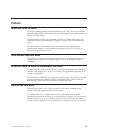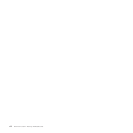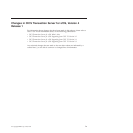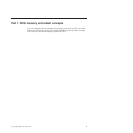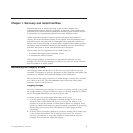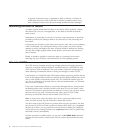Input extrapartition data sets .......134
Output extrapartition data sets ......135
Using post-initialization (PLTPI) programs . . 135
Recovery for temporary storage .......135
Backward recovery ..........135
Forward recovery ...........136
Recovery for Web services .........136
Configuring CICS to support persistent
messages ..............136
Defining local queues in a service provider . . 137
Persistent message processing .......138
Chapter 13. Programming for recovery 141
Designing applications for recovery ......141
Splitting the application into transactions . . . 141
SAA-compatible applications .......143
Program design ............143
Dividing transactions into units of work . . . 143
Processing dialogs with users .......144
Mechanisms for passing data between
transactions .............145
Designing to avoid transaction deadlocks . . . 146
Implications of interval control START requests 147
Implications of automatic task initiation (TD
trigger level) ............148
Implications of presenting large amounts of data
to the user .............148
Managing transaction and system failures ....149
Transaction failures ..........149
System failures ............151
Handling abends and program level abend exits 151
Processing the IOERR condition ......152
START TRANSID commands .......153
PL/I programs and error handling .....153
Locking (enqueuing on) resources in application
programs...............153
Implicit locking for files .........154
Implicit enqueuing on logically recoverable TD
destinations .............157
Implicit enqueuing on recoverable temporary
storage queues ............157
Implicit enqueuing on DL/I databases with
DBCTL ..............158
Explicit enqueuing (by the application
programmer) ............158
Possibility of transaction deadlock .....159
User exits for transaction backout ......160
Where you can add your own code .....160
XRCINIT exit ............161
XRCINPT exit ............161
XFCBFAIL global user exit ........161
XFCLDEL global user exit ........162
XFCBOVER global user exit .......162
XFCBOUT global user exit ........162
Coding transaction backout exits ......162
Chapter 14. Using a program error
program (PEP) ...........163
The CICS-supplied PEP ..........163
YourownPEP.............164
Omitting the PEP ............165
Chapter 15. Resolving retained locks
on recoverable resources ......167
Quiescing RLS data sets ..........167
The RLS quiesce and unquiesce functions . . . 168
Switching from RLS to non-RLS access mode. . . 172
Exception for read-only operations .....172
What can prevent a switch to non-RLS access
mode?...............173
Resolving retained locks before opening data
sets in non-RLS mode .........174
Resolving retained locks and preserving data
integrity ..............176
Choosing data availability over data integrity 177
The batch-enabling sample programs ....178
CEMT command examples ........178
A special case: lost locks.........180
Overriding retained locks ........180
Coupling facility data table retained locks ....182
Chapter 16. Moving recoverable data
sets that have retained locks ....183
Procedure for moving a data set with retained
locks ................183
Using the REPRO method ........183
Using the EXPORT and IMPORT functions . . 185
Rebuilding alternate indexes .......186
Chapter 17. Forward recovery
procedures ............187
Forward recovery of data sets accessed in RLS
mode ................187
Recovery of data set with volume still available 188
Recovery of data set with loss of volume . . . 189
Forward recovery of data sets accessed in non-RLS
mode ................198
Procedure for failed RLS mode forward recovery
operation...............198
Procedure for failed non-RLS mode forward
recovery operation ...........201
Chapter 18. Backup-while-open (BWO) 203
BWO and concurrent copy .........203
BWO and backups ..........203
BWO requirements ...........204
Hardware requirements .........205
Which data sets are eligible for BWO .....205
How you request BWO ..........206
Specifying BWO using access method services 206
Specifying BWO on CICS file resource
definitions .............207
Removing BWO attributes .........208
Systems administration ..........208
BWO processing ............209
File opening .............210
File closing (non-RLS mode) .......212
Shutdown and restart .........213
Data set backup and restore .......213
Contents v





